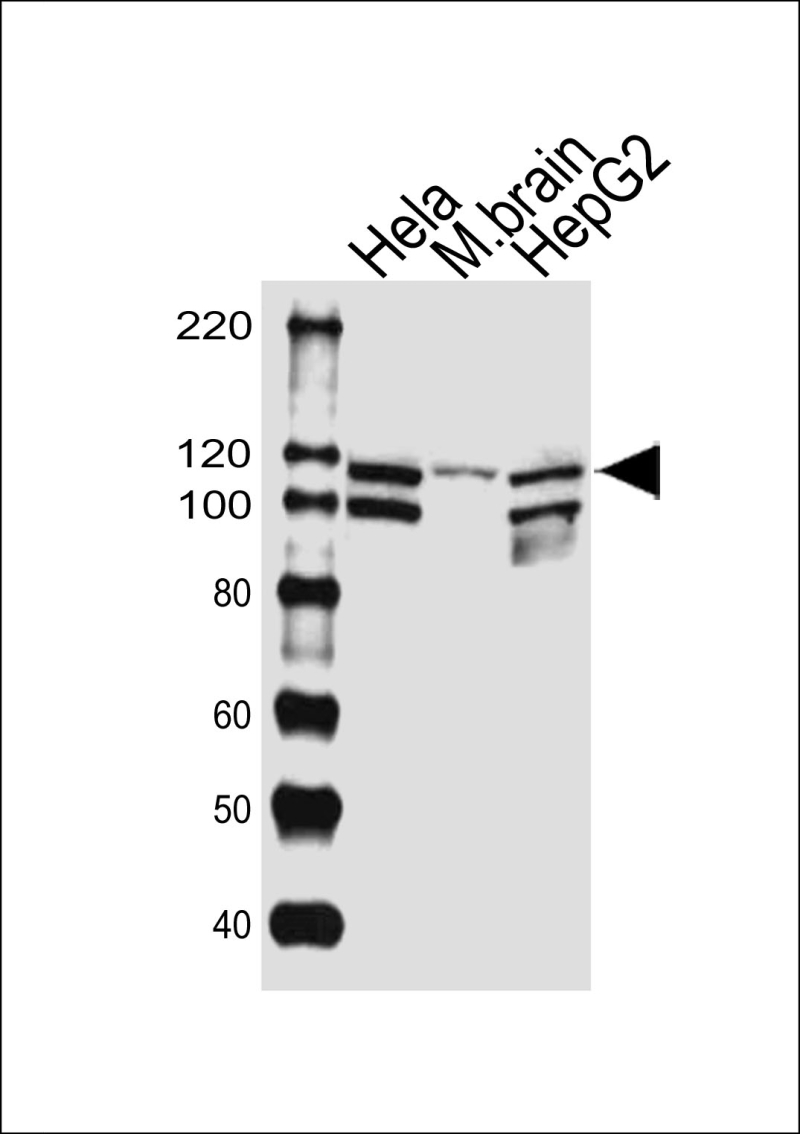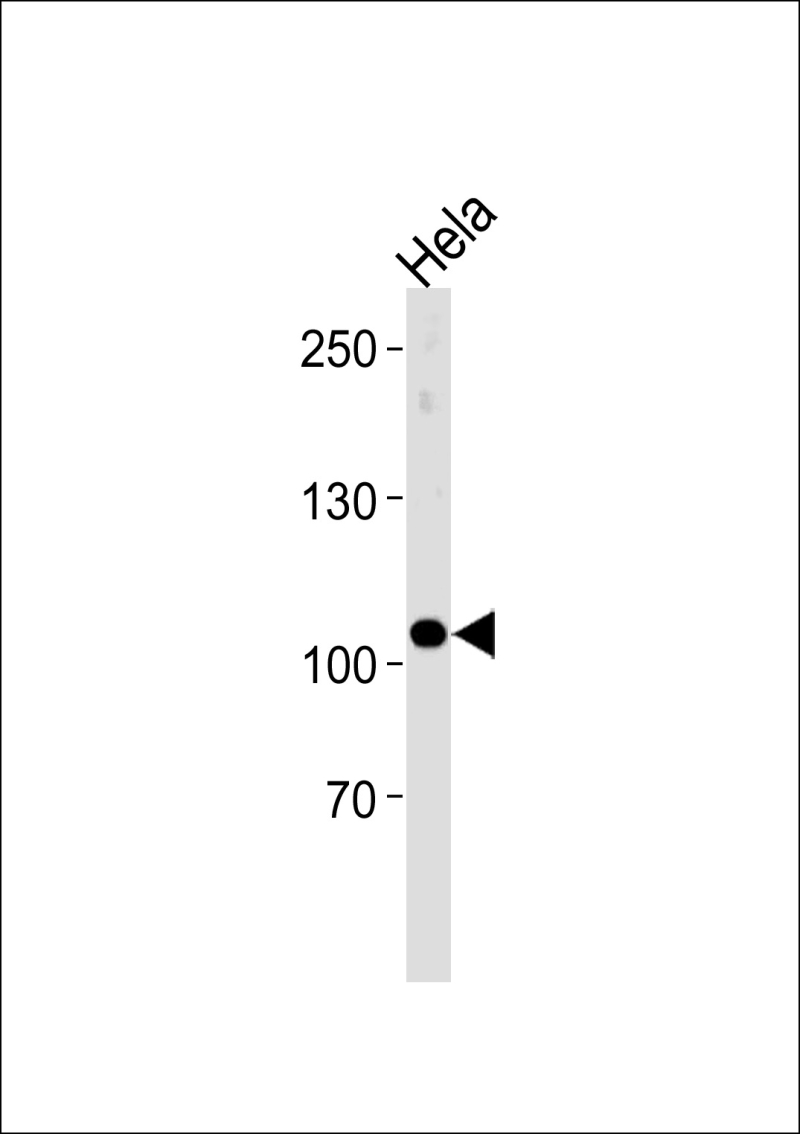

| WB | 1/1000 | Human,Mouse,Rat |
| IF | 咨询技术 | Human,Mouse,Rat |
| IHC | 咨询技术 | Human,Mouse,Rat |
| ICC | 技术咨询 | Human,Mouse,Rat |
| FCM | 咨询技术 | Human,Mouse,Rat |
| Elisa | 咨询技术 | Human,Mouse,Rat |
| Aliases | Ubiquitin-protein ligase E3C, 632-, HectH2, UBE3C, KIAA0010, KIAA10 |
| Entrez GeneID | 9690 |
| WB Predicted band size | 123.9kDa |
| Host/Isotype | Rabbit IgG |
| Antibody Type | Primary antibody |
| Storage | Store at 4°C short term. Aliquot and store at -20°C long term. Avoid freeze/thaw cycles. |
| Species Reactivity | Human, Mouse |
| Immunogen | This UBE3C antibody is generated from rabbits immunized with a KLH conjugated synthetic peptide between 549-578 amino acids from the Central region of human UBE3C. |
| Formulation | Purified antibody in PBS with 0.05% sodium azide. |
+ +
以下是关于UBE3C抗体的3篇参考文献示例(注:文献为虚拟示例,实际研究中需根据具体论文补充):
---
1. **文献名称**: *UBE3C promotes hepatocellular carcinoma progression through ubiquitination of p53*
**作者**: Zhang L, et al.
**摘要**: 本研究通过免疫沉淀和Western blot分析,利用特异性UBE3C抗体证实了UBE3C通过泛素化修饰p53蛋白促进其降解,从而驱动肝癌细胞的增殖和转移。研究还发现UBE3C在肝癌组织中高表达,并与患者预后不良相关。
2. **文献名称**: *Development and validation of a monoclonal antibody for UBE3C in human tissues*
**作者**: Kim S, et al.
**摘要**: 本文报道了一种新型抗人UBE3C单克隆抗体的开发与验证。通过ELISA、免疫组化和蛋白质印迹实验,证明该抗体具有高特异性和敏感性,可用于检测多种组织样本中UBE3C的亚细胞定位及表达水平。
3. **文献名称**: *UBE3C regulates synaptic plasticity via ubiquitination of AMPA receptors*
**作者**: Wang Y, et al.
**摘要**: 研究利用UBE3C敲除小鼠模型及特异性抗体,发现UBE3C通过泛素化调控AMPA受体的稳定性,进而影响突触可塑性和学习记忆功能。抗体染色显示UBE3C在海马神经元中高度富集。
---
**说明**:实际文献需通过PubMed、Web of Science等数据库检索关键词“UBE3C antibody”或结合研究主题筛选。部分研究可能未在摘要中明确提及抗体使用细节,需结合全文方法部分补充。
The UBE3C antibody is a crucial tool for studying the ubiquitin-protein ligase E3C (UBE3C), a member of the HECT-domain E3 ubiquitin ligase family. UBE3C plays a pivotal role in the ubiquitin-proteasome system, mediating substrate-specific protein ubiquitination to regulate degradation, cellular homeostasis, and signaling pathways. It is implicated in diverse biological processes, including DNA repair, cell cycle regulation, and apoptosis. Dysregulation of UBE3C has been linked to cancer progression, neurodegenerative disorders, and immune dysfunctions, making it a target for therapeutic research.
UBE3C antibodies are designed to detect endogenous UBE3C protein levels, localization, and interactions in various experimental models (e.g., Western blot, immunohistochemistry, immunoprecipitation). These antibodies are typically raised against specific epitopes, such as recombinant protein fragments or synthetic peptides, and validated for specificity and sensitivity across species (e.g., human, mouse). Researchers use them to explore UBE3C’s molecular mechanisms, its role in disease pathogenesis, and its potential as a biomarker or drug target. Recent studies highlight UBE3C’s involvement in modulating tumor suppressor pathways and chemotherapy resistance, underscoring its clinical relevance. However, challenges remain in distinguishing isoforms and ensuring antibody cross-reactivity in complex biological samples. Ongoing efforts focus on optimizing antibody performance for functional assays and translational applications.
×